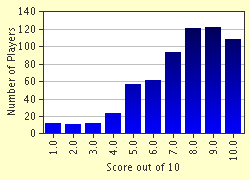Quiz Answer Key and Fun Facts
1. Anthony Cary was a 5th Viscount who became Treasurer of the Royal Navy. In 1690 Captain John Strong, R. N., made the first known landing on a group of islands in the South Atlantic and claimed them for the Crown. The sound between the islands was named after Cary; and the name was later applied to the archipelago as a whole. So Cary's title was Viscount ____________?
2. Another nobleman with naval connections was John Montagu, a 4th Earl who was First Lord of the Admiralty from 1748 to 1751, from 1763 to 1765 and from 1771 to 1782. He is popularly remembered for his addiction to gambling. It is said that, rather than leave the gaming tables to eat, he would get servants to bring him snacks that he could eat while he played. What was the title of Montagu's earldom?
3. Edward Stanley was a 12th Earl with a great interest in the turf. England's greatest classic horse race, first run in 1780, is named after him, so what was the title of his earldom?
4. Thomas Bruce was a 7th Earl, diplomat and art connoisseur. In 1799 he was appointed as His Majesty's Ambassador Extraordinary and Plenipotentiary at the Sublime Porte in Constantinople. While he was there he acquired certain sculptures from the Parthenon in Athens and arranged for them to be transported to Britain. What was Bruce's earldom?
5. Arthur Wellesley was a younger son of an Irish Earl who rose to become a Field-Marshal and a Duke. His first successful campaigns were in India, and he is best remembered for his role in the Napoleonic wars, which culminated in a victory at a place to the south of Brussels. He has given his name to a boot: what was his dukedom?
6. Fitzroy James Henry Somerset was an army officer. He first saw service in the Napoleonic wars, where he lost his sword arm. He then spent many years at the War Office, becoming Master-General of the Ordnance. In 1852 he was made a peer, and in 1854 he was made a Field-Marshal and put in command of a force that was sent to the Crimea. He gave his name to an overcoat without shoulder-seams, having sleeves that extend to the neck. What was the title of the barony that he took in 1852?
7. James Thomas Brudenell was a 7th Earl. Like the previous man, he was a soldier who served in the Crimea, where he led a famous charge. He gave his name to a knitted woollen jacket with buttons. What was his earldom?
8. John Sholto Douglas was a 9th Marquess who is remembered for drawing up a code of rules for boxing. What was his marquisate?
9. Hugh Cecil Lowther was a 5th Earl who also had an interest in boxing. He instituted the award of a belt for outstanding boxers. What was his earldom?
10. Charles Anderson Worsley was a 2nd Earl who was fond of a game of whist. He used to offer to bet 1,000 to 1 against anyone holding a hand with no card higher than a nine. Such a hand was therefore called after him: what was his earldom?
Source: Author
TabbyTom
This quiz was reviewed by FunTrivia editor
agony before going online.
Any errors found in FunTrivia content are routinely corrected through our feedback system.

